Black Sabbath Might Reunite For One Last Show — But Should They?
Recently, Ozzy Osbourne got some press when he floated the idea that Black Sabbath might reunite for one show, featuring the original lineup. Unlike their final tour, and their final…

LONDON – NOVEMBER 16: (L-R) Black Sabbath band members Terry Butler, Bill Ward, Ozzy Osbourne and Tony Iommi pose backstage with the award for their induction into the UK Music Hall Of Fame 2005, the culmination of the two-week Channel 4 series looking at 1950’s-1990’s popular music, at Alexandra Palace on November 16, 2005 in London, England.
(Photo by MJ Kim/Getty Images)Recently, Ozzy Osbourne got some press when he floated the idea that Black Sabbath might reunite for one show, featuring the original lineup. Unlike their final tour, and their final album, he says that this show should feature the band’s founding drummer, Bill Ward, joining Ozzy, guitarist Tony Iommi and bassist Geezer Butler. Now that Ozzy and Geezer have ended their , it seems like it can happen. But should it? It's been over seven years since Black Sabbath has performed; it's been over a decade since Bill Ward has played with them.
A quick recap: Tommy Clufetos, the drummer in Ozzy’s solo band, played on the final Sabbath tour, while Rage Against The Machine’s Brad Wilk played on 2013’s 13. 13 was the band’s Rick Rubin-produced reunion with Ozzy, and also served as their swan song.
Iommi, Butler, Osbourne, and Ward released their debut album, Black Sabbath, in the U.S. in June of 1970, which many fans see as the birth of heavy metal. They went on to release a series of classic albums, including 1970's Paranoid, 1971's Master of Reality, and 1972's Vol. 4. Ozzy and the band parted ways in 1979, leading to Ozzy's incredibly successful solo career. He was replaced by Ronnie James Dio. Ward soon left and was replaced by Vinnie Appice. Ronnie James Dio and Vinnie Appice left in 1982 to form the band Dio, leading to years of a revolving door membership in Black Sabbath.
Through the ‘80s and ‘90s, Iommi was the band’s only consistent member. This era of the band is covered, for those interested, on the newly released box set Anno Domini 1989-1995. That era of the band has its fans; but that version of the band had little in common with the version of Black Sabbath that created a subculture and changed the course of rock music in the 1970s.
The legendary version of the band – well, three-quarters of it – returned with a vengeance in 1997. When the first Ozzfest tour lineup was revealed, Black Sabbath was announced as headliners. Bill wasn’t invited to rejoin the guys: at the time, they used Mike Bordin from Faith No More, who also played in Ozzy’s solo band. The show that I saw at New Jersey's Giants Stadium was incredible. No lie: I saw some older metalhead crying, saying, "I never thought I'd see this." I recalled that Sabbath played the New York City club Roseland two or three years earlier: I wasn't sure if that had sold out, and no one that I spoke to who went seemed to be too enthusiastic about it. With this tour -- which saw Pantera, Marilyn Manson and Type O Negative supporting Sabbath -- the band returned to their rightful legendary status. Later that year, Ward joined the band for two nights in their hometown of Birmingham, captured on the Reunion live album.
In 1998, Bill had a heart attack and was replaced by Vinnie Appice for a European tour. He returned for the U.S. tour. I was fortunate enough to interview the four of them together a year later when they released the Reunion live album and the vibe was more than genial, it was jovial. They really seemed to be enjoying hanging out together (and they seemed to be having a blast teasing Bill). He joined them for a few more Ozzfest tours. Things were (mostly) good for a few years but in 2012, Bill announced that he would not be part of the upcoming Sabbath album or any tours until he got a “signable” contract.
The final Black Sabbath tour ended on February 4, 2017 in Birmingham. Ward had a tour booked with his solo band Day Of Errors in 2017, but had to cancel. As he posted to social media, “I am OK and in good recovery at this time. However, I've never experienced this particular type of heart problem before, and due to its nature, I had to make the decision to cancel the dates.” Ward has barely performed live in the past decade; he’s 76 years old.
Meanwhile, Ozzy Osbourne, 75, has been active with his solo career since Sabbath ended, but various health issues have plagued him. In February 2023, Ozzy officially canceled all of his remaining tour dates, saying that he's physically unable to tour anymore. In an interview with Rolling Stone earlier this year, when asked if he could perform again, he said, “I would love to, but I can’t stand upright. Maybe I’ll do something one day. I miss it terribly.”
Of course, there’s a difference between performing one concert and touring; part of what makes touring grueling for musicians is having to perform several nights a week, not to mention traveling. Even for Sabbath, who definitely travel in style, it’s tough. Could the four of them return to fighting shape for one last show? And would it really be the last show? Words like "last," "final" and "farewell" hardly seem to mean anything anymore: the Who’s first farewell tour was in 1982; the idea of a “last tour” is almost a cliche.
Sabbath’s last show -- February 4, 2017 -- really did seem like the end. So, would one more show right the wrong of Ward’s exclusion from the last few years of the band’s history? It might. But a few things could sully this. One: if the guys just aren’t up to it. If they do one last show with Bill, but it doesn’t hold up to their shows from seven years ago, what’s the point? The window of opportunity for them to do a credible Black Sabbath concert with Bill Ward may have passed.
I saw several Sabbath shows in their final decade, both with and without Bill. Did they match the intensity of the shows that I've heard on recordings of their concerts in the 1970s? No, but it was a reasonable approximation and they put on a solid show. They still had it. But I've been to shows with artists who are clearly past their prime, and you just kind of walk out of the gig and feel bummed out. I'd hate for that to be the last Black Sabbath show.
Also, if the show is good, Sabbath, their management and concert promoters should not get greedy. Just because there is demand for something, doesn’t mean that the thing will be worth the anticipation. Yes, there’s always money to be made from a Black Sabbath tour, but there’s also something to be said about knowing when to take that final bow. If they actually do one more show, they should keep it to just that: one more show.
Back in 2003, I was fortunate enough to work on an essay included in The Black Box: The Complete Original Black Sabbath 1970-1978 box set. I conducted separate interviews with Ozzy, Tony, Geezer and Bill. At the time of these interviews, there were no planned Sabbath shows, and I asked if it would ever happen again. It occurs to me that they might answer the same way if I spoke to each of them today. Ozzy told me, “I never say ‘never’ anymore. It’s possible – I’m open for anything. If it works, it works; if it doesn’t, it doesn’t.”
Tony said, “I would hope so, at some time,” and kind of put the ball in Ozzy’s court. Bill was optimistic: “I have to keep myself in relatively good shape, if we are to tour.”
But I ended my essay with Geezer’s answer: “If we work together again or not is irrelevant to me. I’m glad we finished on a high note, and I am satisfied with that.” And I think we all need to be prepared to be satisfied with how Black Sabbath ended, even if it wasn’t perfect. Because if their proposed "final" concert is anything less than a flawless and mindblowing performance, would be a letdown. Both the band and the fans deserve better.
Fifty years ago this week (September 18), the mighty Black Sabbath released their second album, Paranoid, in America. A bit tighter than their self-titled debut, which came out earlier in the year, Paranoid's title track became their biggest radio hit in America. The album also had "Luke's Wall/War Pigs" and "Iron Man," But the 41-minute album didn't waste a second: it's a perfect album.
In fact, seven of the eight songs made our list that we put together in honor of Paranoid's 50th. And yes, Black Sabbath did some incredible stuff with Ozzy's replacement, the late, great Ronnie James Dio... and that's probably a list for another day (and yes, both RJD and drummer Vinny Appice should have been inducted into the Rock and Roll Hall of Fame with the founding four members, Tony Iommi, Geezer Butler, Ozzy Osbourne and Bill Ward) .
Here, we decided to stick with songs from the Ozzy eras of the band. 1970's debut album (and the "Evil Woman" single) through 1978's Never Say Die! and also 2013's 13. Yes, we know that they put out two new songs in the '90s, but those didn't come close to making this list... which, like Paranoid, doesn't waste a moment. The roots of every heavy metal band can be found in these thirty songs.
30. “End Of The Beginning” - ‘13’ (2013)
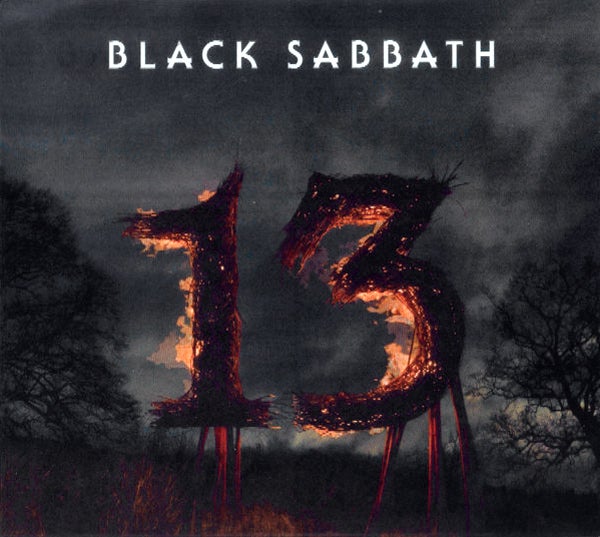 Universal
UniversalIt was also the beginning of the end; the leadoff song on ‘13,’ Sabbath’s first album with Ozzy Osbourne since 1978’s ‘Never Say Die’; it was also their final album. Like a lot of other songs on the Rick Rubin-produced album, it had a lot of sonic references to the band’s 1970 debut; in the case of this song, it bore quite a bit of resemblance to “Black Sabbath.”
29. “It’s Alright” - ‘Technical Ecstasy’ (1976)
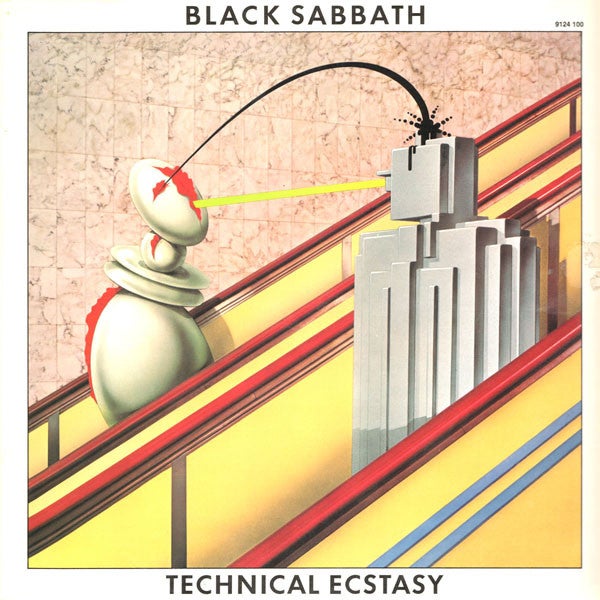 Warner Bros
Warner Bros29. “It’s Alright” - ‘Technical Ecstasy’ (1976) - Yeah, we said that all of the songs on this list are from the Ozzy Osbourne era, but not all of them featured Ozzy on lead vocals. “It’s Alright” is a lovely piano-driven mid-tempo ballad featuring drummer Bill Ward on vocals. This song could hold its own along with a lot of the soft-rock hits of the ‘70s.
28. “Snowblind” - ‘Vol. 4’ (1972
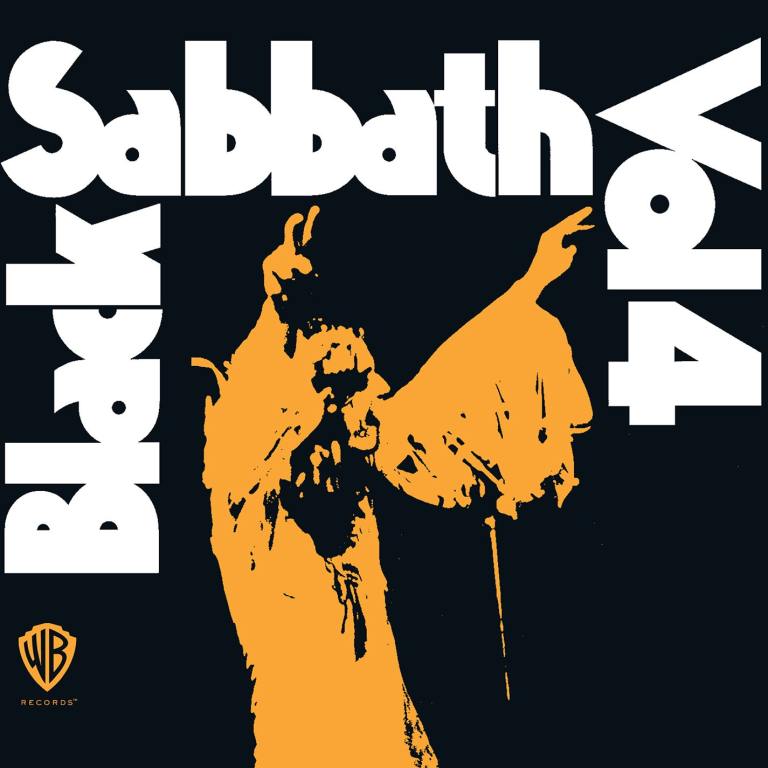 Warner Bros
Warner BrosSabbath saw that the drugs were taking over; this anthem isn’t about the weather, but rather about how cocaine is a hell of a drug, and it tends to be all-consuming.
27. “A Hard Road” - ‘Never Say Die!’ (1978
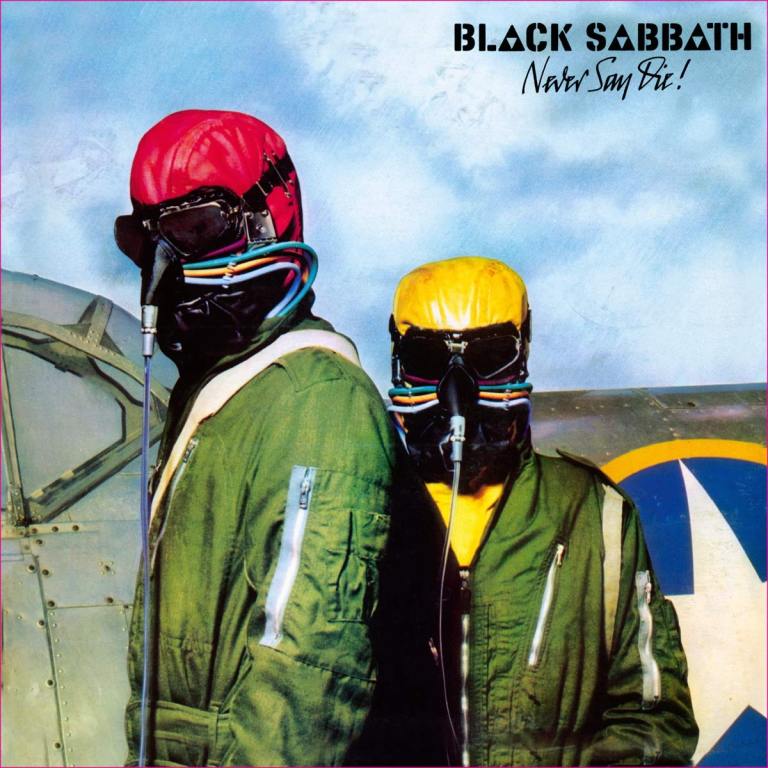 Warner Bros
Warner Bros“Why make the hard road? Why can't we be friends? No need to hurry: we'll meet in the end” seemed to predict their impending split - within two years, Ozzy would be out of the band and Bill Ward soon followed. And indeed, they did get back together decades later, but it was often without Ward.
26. “Hole In The Sky” - ‘Sabotage’ (1975)
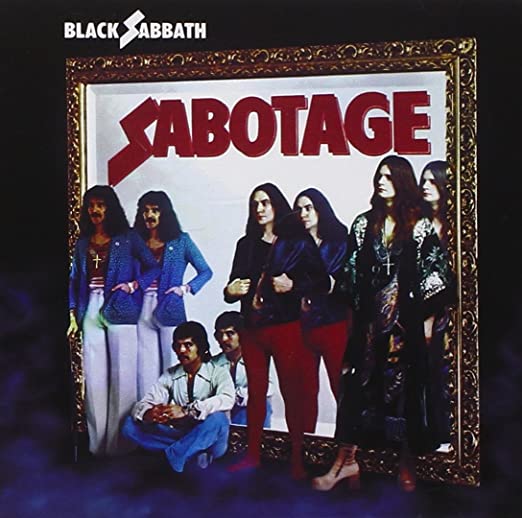 Warner Bros
Warner BrosIs it about madness, the ozone layer, or both? Tough to say, but elsewhere on the album, the Sabs asked “Am I Going Insane?”
25. “Loner” - ‘13’ (2013)
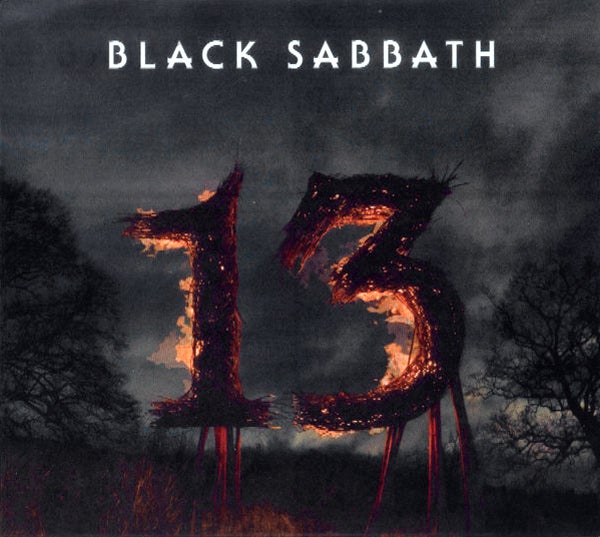 Universal
UniversalOn ‘13,’ Sabbath focused on their lengthier epics, but “Loner” was one of the few songs clocking in at under five minutes, and it holds up against much of their earlier catalog (as evidenced by its high placement on our list).
24. “Changes” - ‘Vol. 4’ (1972)
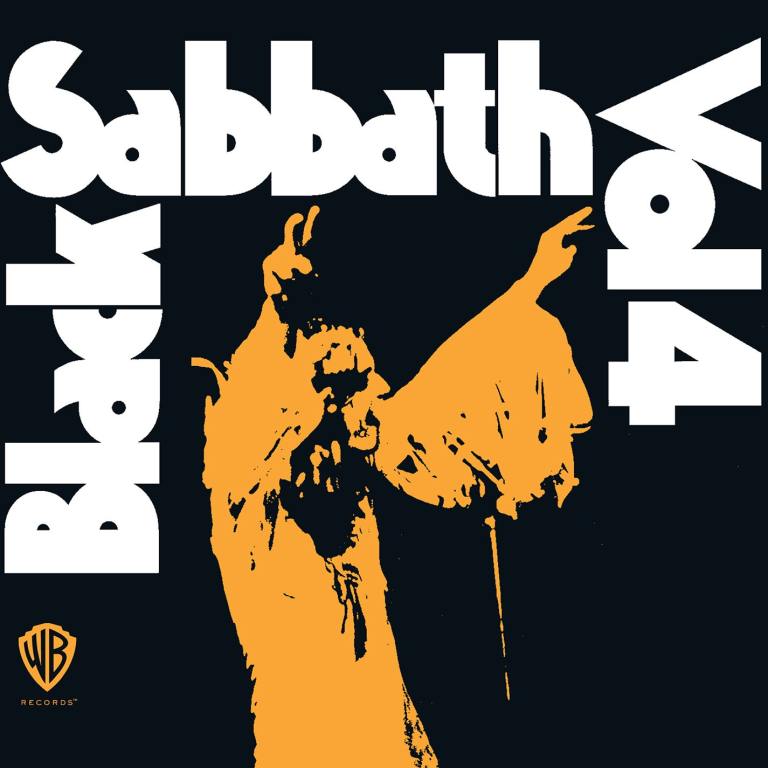 Warner Bros
Warner BrosA heartbreaking piano ballad, the lyrics were inspired by Bill Ward’s divorce; oddly, Ward doesn’t appear on the song, which simply features Ozzy crooning, with Tony Iommi on piano and mellotron and Geezer Butler on bass and mellotron. But the song was universal enough that anyone could apply it to their lives; Ozzy re-recorded it decades later as a duet with his daughter Kelly, and it definitely took on a new meaning in that context.
23. “Lord Of This World” - ‘Master Of Reality’ (1971)
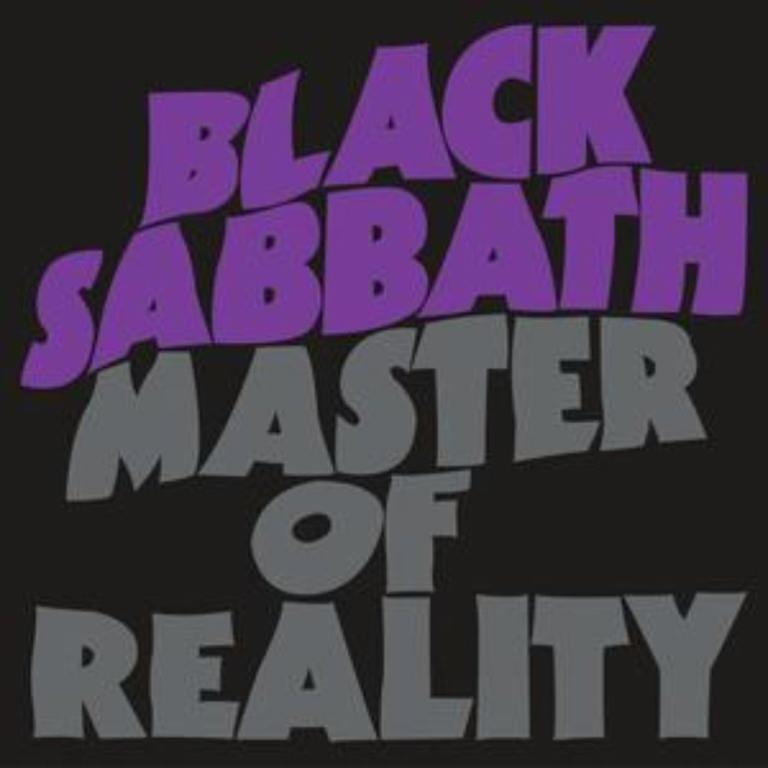 Warner Bros
Warner BrosTony Iommi was the king of incredible riffs in the early ‘70s (you’ll note that we marvel at his riffs often on this list), and “Lord Of This World” has one of his best. Sabbath was often accused of Satanism -- an accusation they laughed at -- and the lyrics here warned of the consequences of choosing evil: “Your world was made for you by someone above/But you chose evil ways instead of love/You made me master of the world where you exist/The soul I took from you was not even missed.”
22. “Evil Woman” - single (1970)
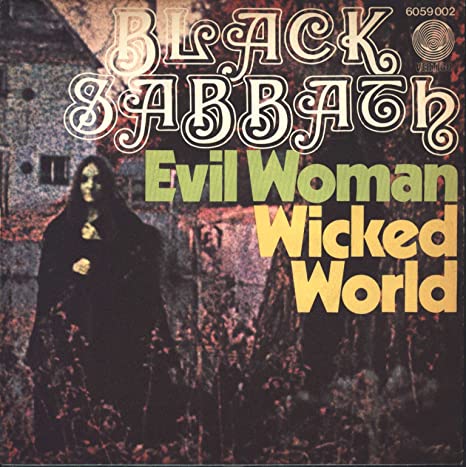 Fontana
FontanaBlack Sabbath has never been big on covers, but their first single, “Evil Woman” is a cover by a little known band called Crow, from their 1969 album ‘Crow Music.’ Funny enough, the song didn’t sound nearly as evil as anything from Sabbath’s first few albums.
21. “Symptom Of The Universe” - ‘Sabotage’ (1975)
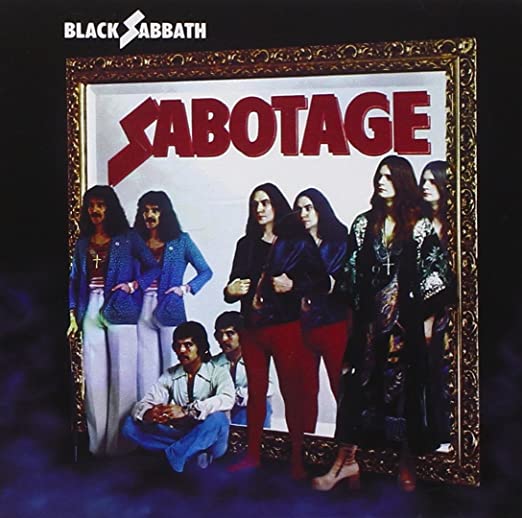 Warner Bros
Warner BrosOne of Sabbath’s faster songs, it is often cited as an early precursor to thrash metal and has been covered by Sepultura and Helmet.
20. “Into The Void” - ‘Master Of Reality’ (1971)
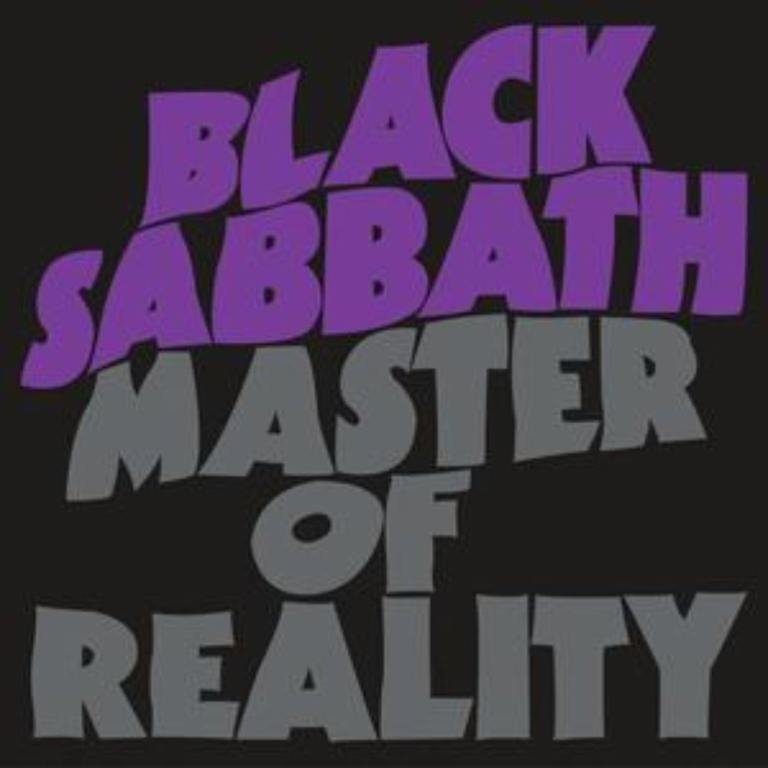 Warner Bros
Warner BrosIt’s one of Sabbath’s darkest songs, and that’s really saying something. But after describing the ways humans ravaged the earth, a few lucky souls escape the planet and make their home elsewhere: “Leave the earth to Satan and his slaves/Leave them to their future in their graves/Make a home where love is there to stay/Peace and happiness in every day.”
19. “A Bit Of Finger/Sleeping Village/Warning” - ‘Black Sabbath’ (1970)
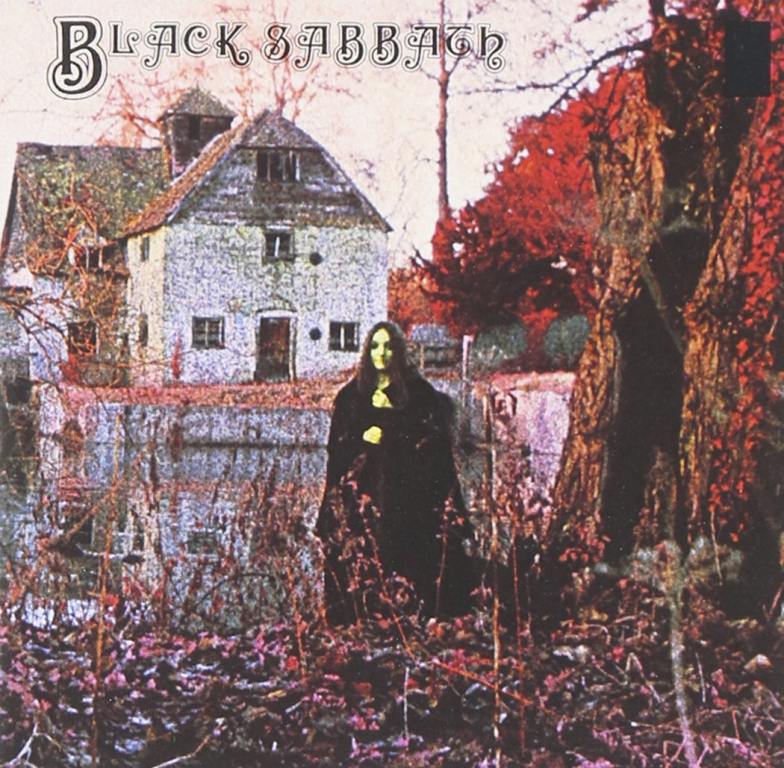 Warner Bros
Warner BrosThe 14 minute-plus epic that brought the debut album to a close, it shows the band’s prog-rock influence, but it’s also one of the bluesiest songs in their cannon. The third section of the song was another cover: “Warning” was by the Aynsley Dunbar Retaliation. Most fans wouldn’t know it unless they checked the credits: it just sounds like a Sabbath song, and you can hear them evolving during the song. Fun fact: Aynsley Dunbar, like the original members of Sabbath, is a Rock and Roll Hall of Famer: he was the drummer on Journey’s first few albums.
18. “Jack The Stripper/Fairies Wear Boots” - ‘Paranoid’ (1970)
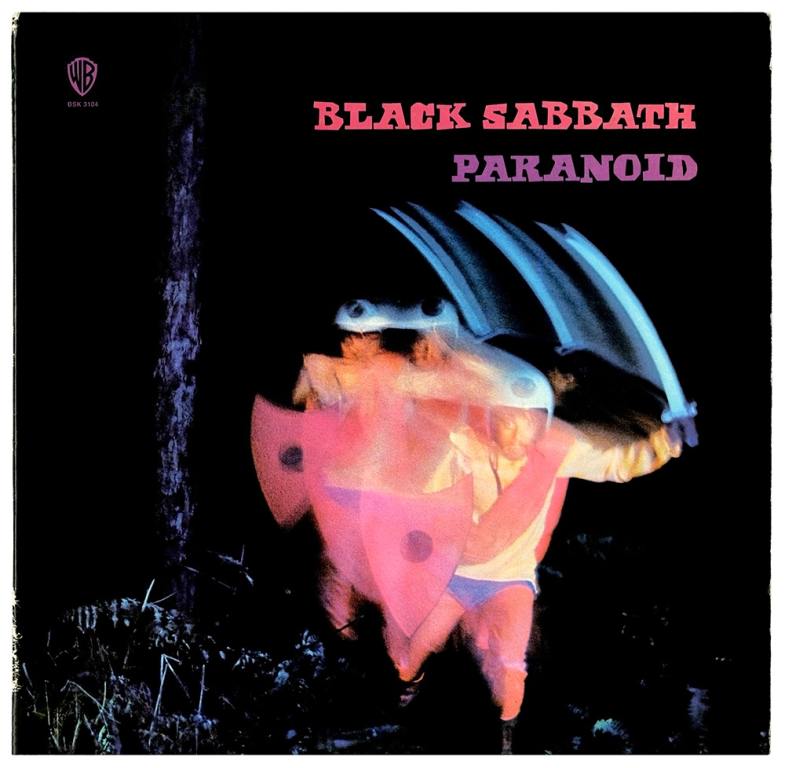 Warner Bros
Warner Bros18. “Jack The Stripper/Fairies Wear Boots” - ‘Paranoid’ (1970) - Even before punk rock, punks and metalheads had beef; Geezer Butler has said that Ozzy Osbourne wrote the lyrics to this one about a bunch of skinheads calling him a “fairy” because of his long hair. Ironically, a bunch of longhaired punks -- the Ramones -- would open for Sabbath a few years later. And wouldn’t you know it: they got booed fairly often.
17. “Wicked World” - ‘Black Sabbath’ (1970)
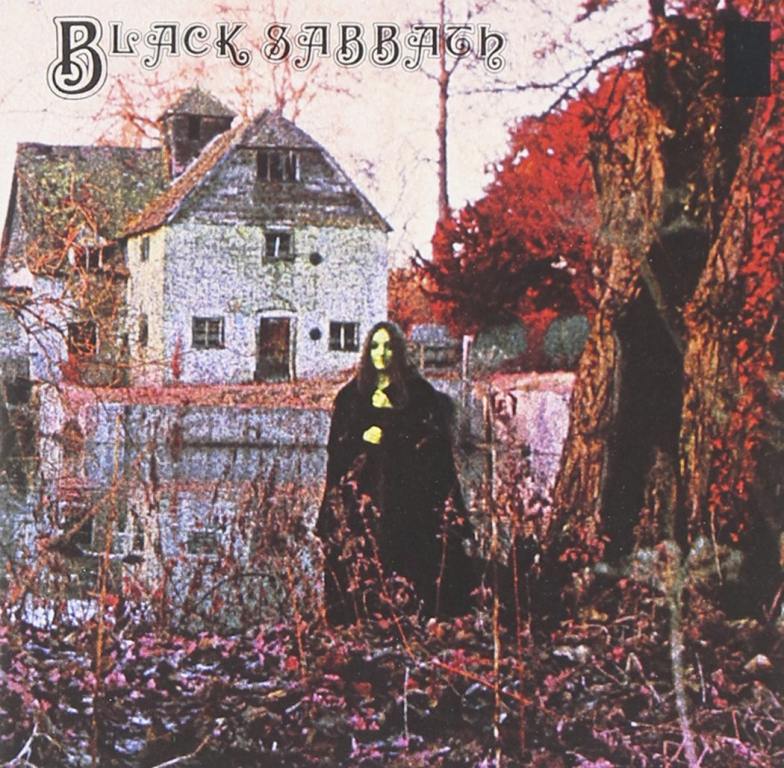 Warner Bros
Warner BrosSabbath drummer Bill Ward has always cited jazz as an influence, and you really get that in this jam from Sabbath’s debut. Lyrically, it’s a working-class anthem on par with Creedence Clearwater Revival’s “Fortunate Son”: “A politician's job they say is very high/For he has to choose who's got to go and die/They can put a man on the moon quite easy/While people here on earth are dying of old diseases.”
16. “Never Say Die” - ‘Never Say Die!’ (1978)
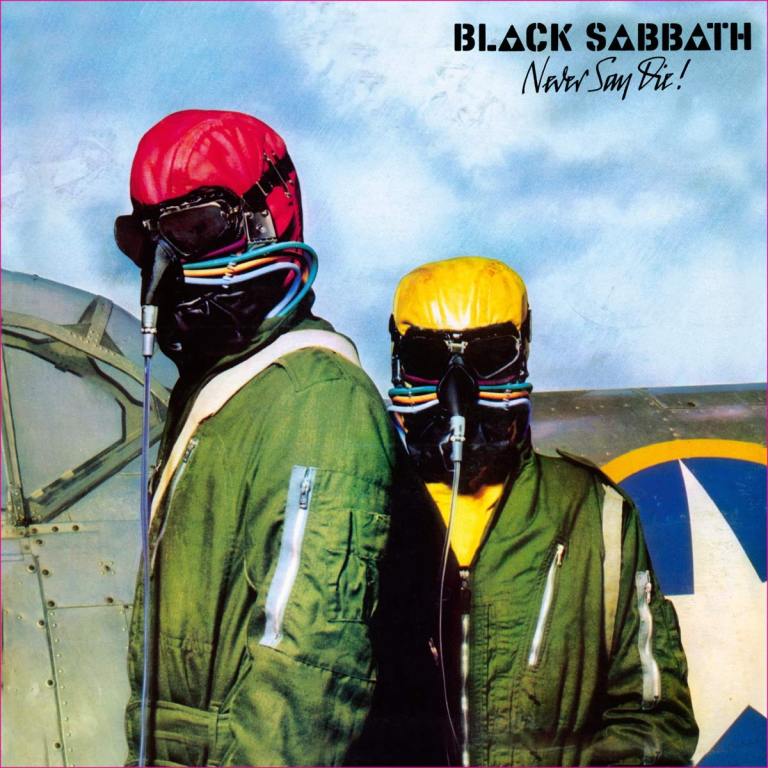 Warner Bros
Warner BrosThe Ramones may not have gone down well with Black Sabbath’s fans, but on the title track to their final album with Ozzy (before their reunions), you could almost hear a “1-2-3-4!” In retrospect, the album’s title is ironic, given that both Ozzy and Bill would be out of the band in a few years. Years later, though, it served as a rallying cry, and Sabbath -- with Ozzy on vocals and sometimes, with Bill behind the kit -- was a huge touring band from the late ‘90s through the mid ‘10s.
15. “Under The Sun” - ‘Vol. 4’ (1972)
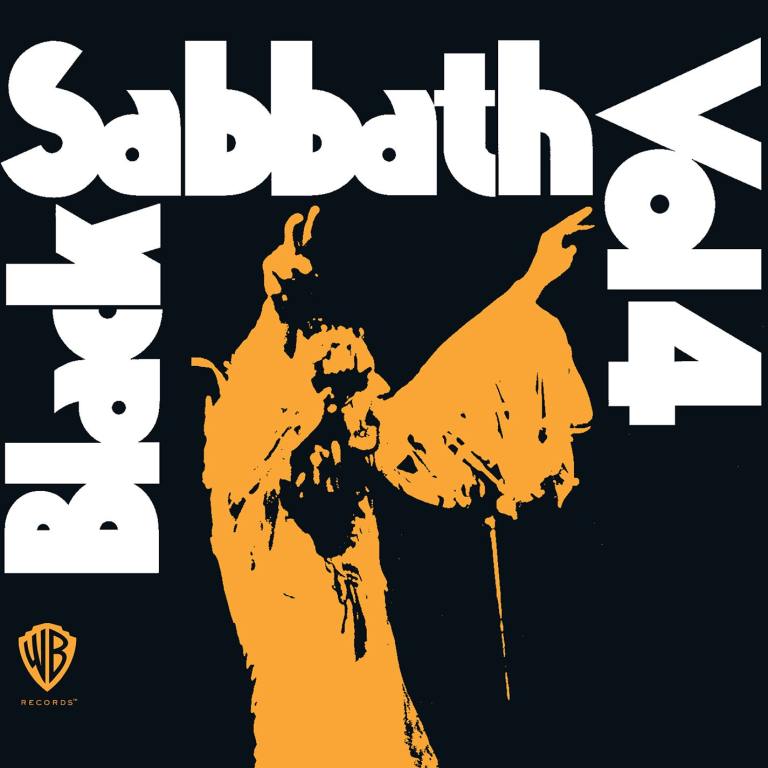 Warner Bros
Warner BrosA powerful anthem of self-reliance: the lyrics reject religion, instead urging the listener, “Don't let those empty people/ Try and interfere with your mind /Go and live your life/And leave them all behind.”
14. “Children Of The Grave” - ‘Master Of Reality’ (1971)
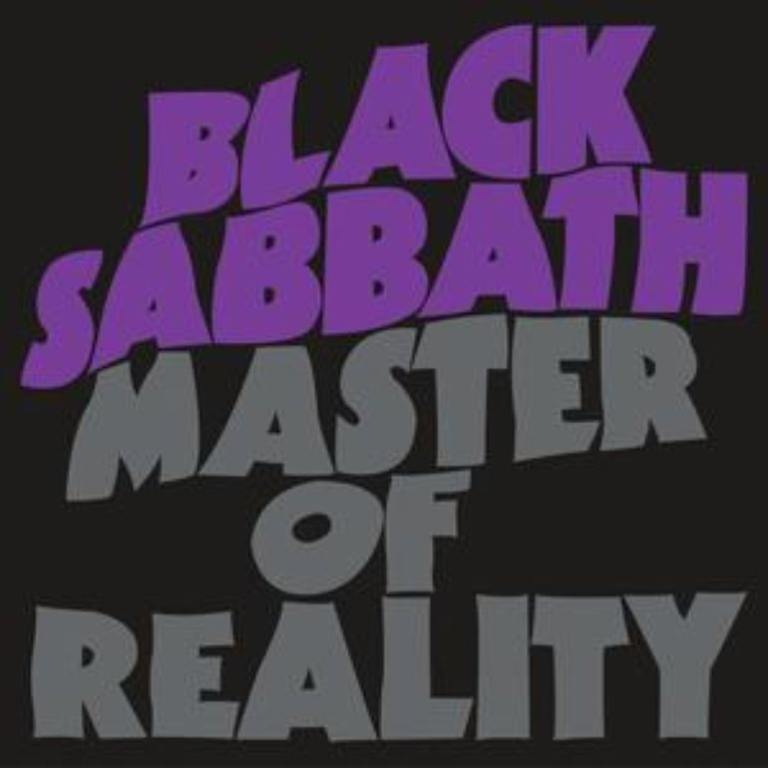 Warner Bros
Warner BrosBlack Sabbath are often viewed as the antidote to ‘60s and early ‘70s hippie rock, but like many west coast bands, the Sabs were against war. For the hippies, it might have been because discipline is, like, a drag, man. For Ozzy, Tony, Geezer and Bill, they grew up in Birmingham, England during a time when the wreckage from World War II was part of their landscape. They may not have lived through a war, but they knew what the aftermath looked like. So when Ozzy wailed, “Show the world that love is still alive you must be brave/Or you children of today are children of the grave,” it wasn’t about showing up to San Francisco with flowers in your hair, it was about survival.
13. “Supernaut” - ‘Vol. 4’ (1972)
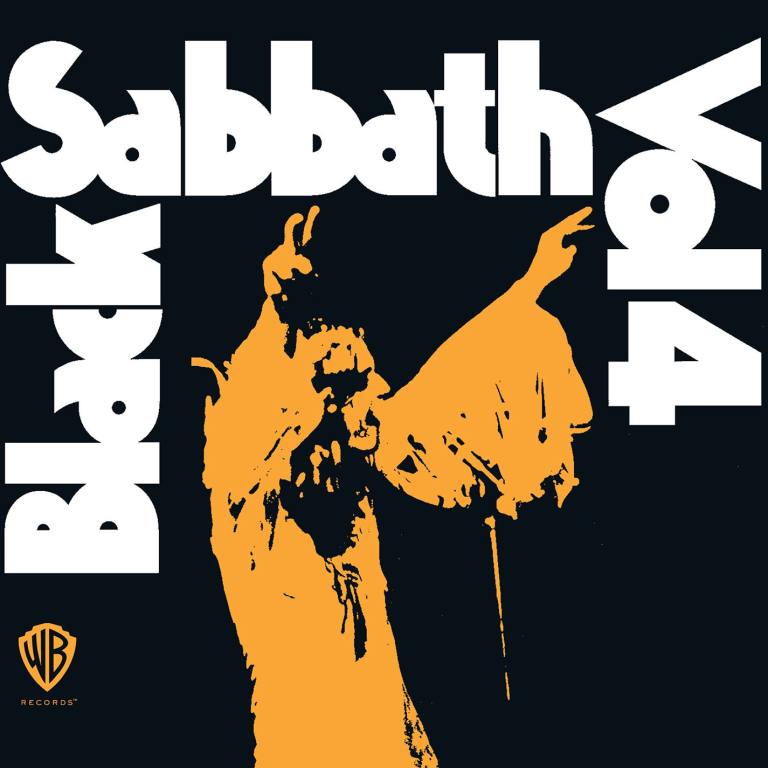 Warner Bros
Warner BrosAnother anthem of self-reliance: “Got no religion, don't need no friends/Got all I want and I don't need to pretend/Don't try to reach me, 'cause I'd tear up your mind/I've seen the future and I've left it behind.” The song is one of Bill Ward’s finest moments with the band. It also inspired one of the best Sabbath covers: the version by 1,000 Homo DJs -- featuring Al Jourgensen of Ministry and Trent Reznor of Nine Inch Nails -- is classic. But not as good as the original.
12. “Wasp/Behind The Wall Of Sleep/Bassically/N.I.B.” from ‘Black Sabbath” (1970)
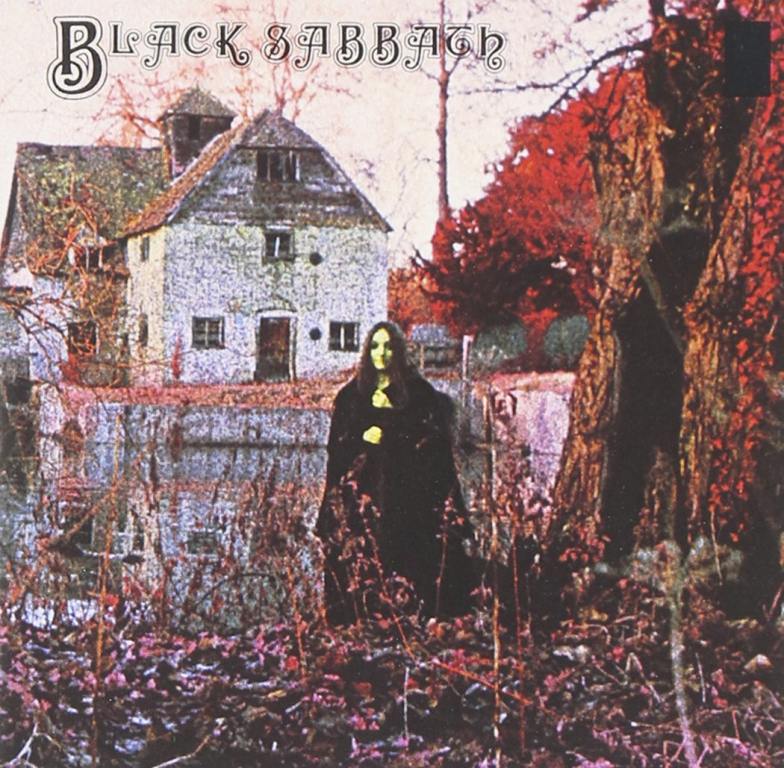 Warner Bros
Warner BrosA couple of pieces of music that were put together for one track stretching to nearly ten minutes, “Behind The Wall Of Sleep” was a great lead into a short Geezer Butler showcase. But the final movement -- “N.I.B.” -- had one of Tony Iommi’s most fearsome riffs. The lyrics, by Butler, were deliciously evil: they were about Lucifer seducing a woman.
11. “Electric Funeral” - “Paranoid” (1970)
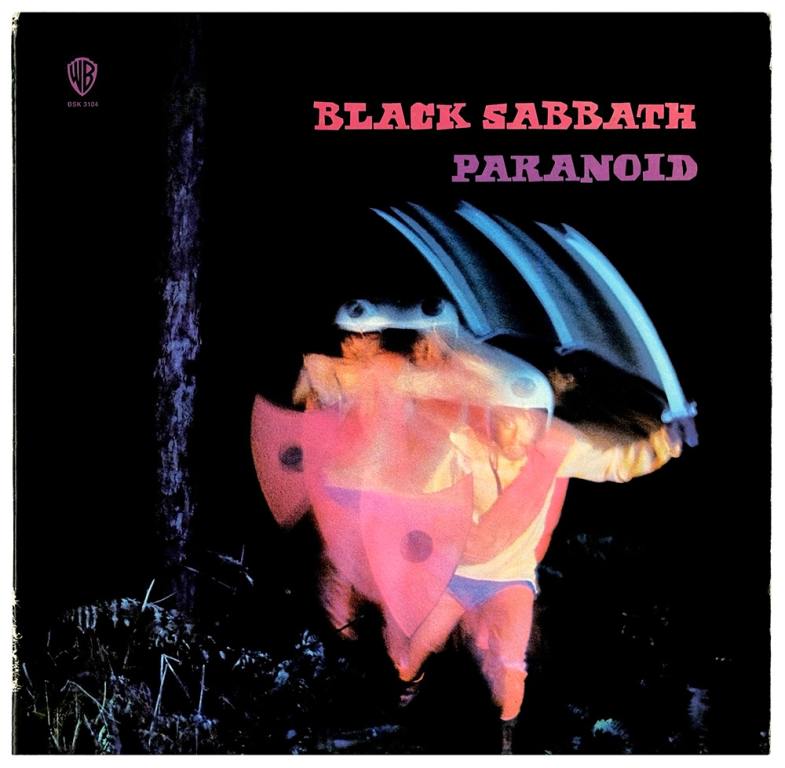
11. “Electric Funeral” - “Paranoid” (1970) - Another apocalyptic warning about the future if humanity kept on the course of never-ending wars, set to some of Tony Iommi’s creepiest guitar playing.
10. “The Wizard” from ‘Black Sabbath’ (1970)
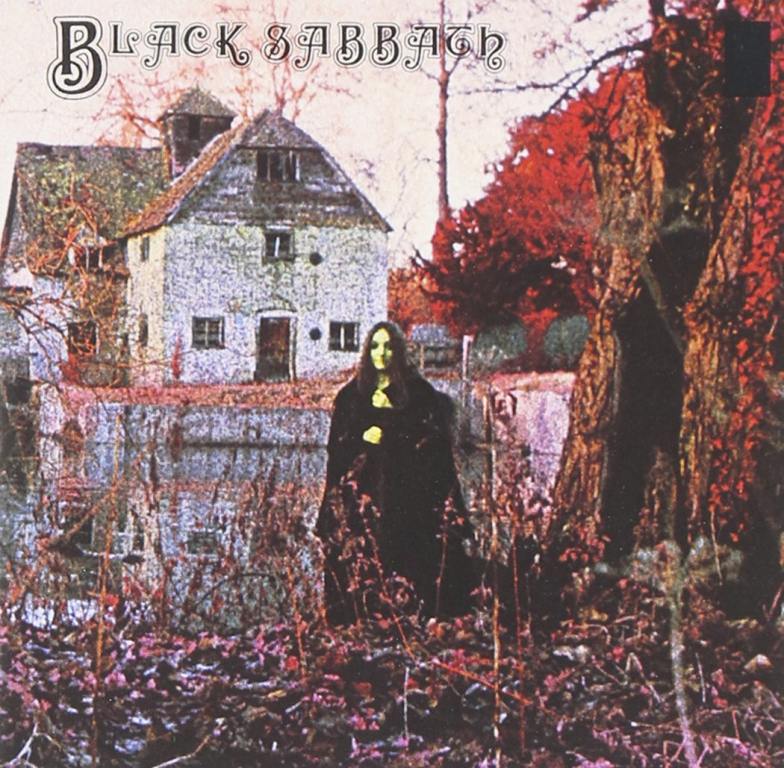 Warner Bros
Warner Bros10. “The Wizard” from ‘Black Sabbath’ (1970) - Sabbath mostly left the Tolkien-inspired lyrics to their neighbors in Led Zeppelin, but here, “The Wizard” was inspired by Gandalf, the character from ‘The Lord Of The Rings’ and ‘The Hobbit.’ The song is also notable for Ozzy’s enthusiastic harmonica playing.
9. “Planet Caravan” - “Paranoid” (1970)
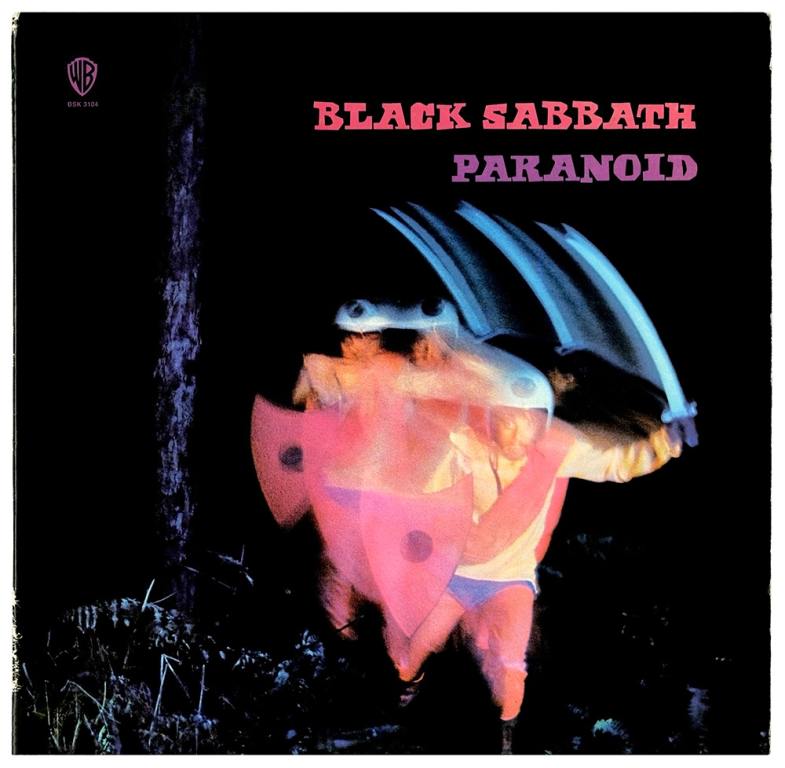 Warner Bros
Warner BrosOf course Black Sabbath is probably still the heaviest band of all time. But they don’t get enough credit for their mellow side. “Planet Caravan,” though, is one of their best songs, and features gently picked and strummed guitar by Iommi, who also plays flute, and Ward lightly tapping on congas. It’s another song that inspired a great cover: Pantera even got mellow to record this one.
8. “Sweat Leaf” - ‘Master Of Reality’ (1971
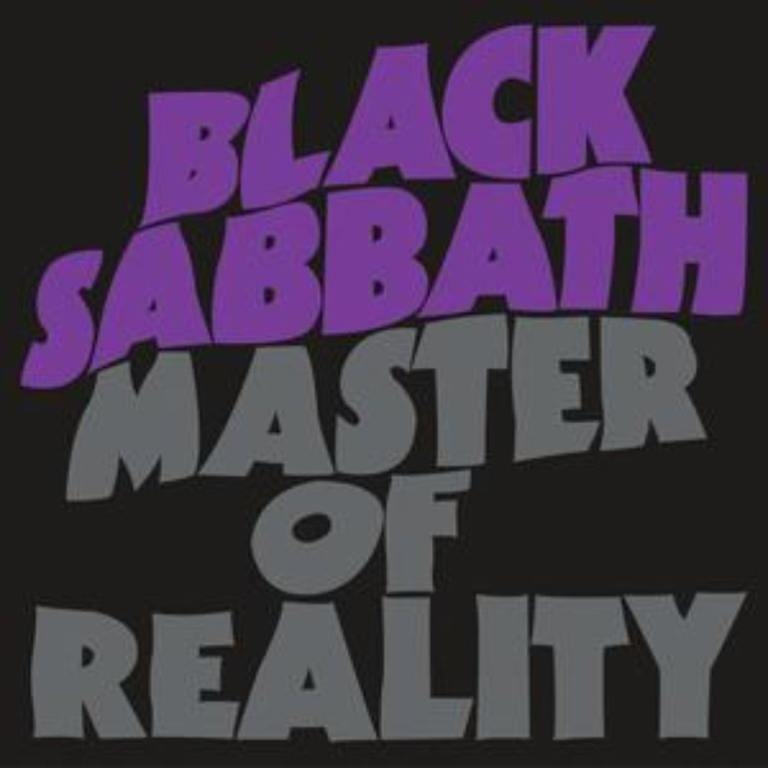 Warner Bros
Warner BrosStoner metal starts here. The cough at the beginning of the song is Tony Iommi, who was sharing a j with Ozzy at the time. The pro-marijuana theme might not have been totally responsible, but smoking inspired one of Iommi’s greatest riffs (we know, we’ve been saying that a lot, but hey, who had better riffs than Tony Iommi?).
7. “Hand Of Doom” - ‘Paranoid’ (1970)
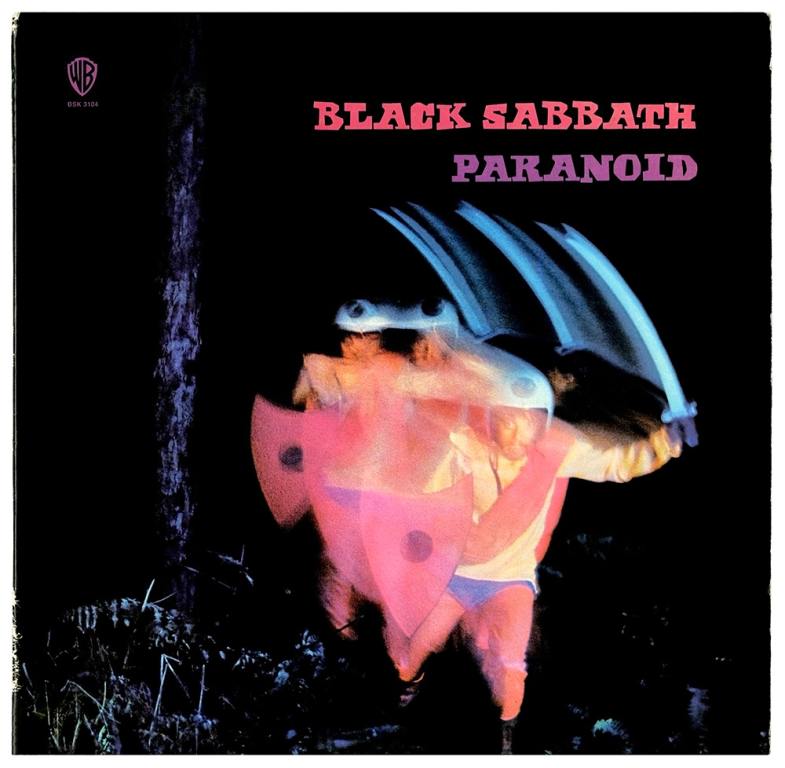 Warner Bros
Warner BrosOver a decade before Bruce Springsteen sang about the plight of Vietnam vets in “Born In The U.S.A.,” Sabbath looked at their situation in “Hand of Doom.” It doesn’t get much more dire than this: telling the tale of Vietnam vets who came home and became heroin addicts. While parents were worried about Sabbath’s devil-related songs, those were all in good fun. This one wasn’t: “First it was the bomb/Vietnam napalm/Disillusioning/You push the needle in.”
6. “After Forever” - ‘Master Of Reality’ (1971)
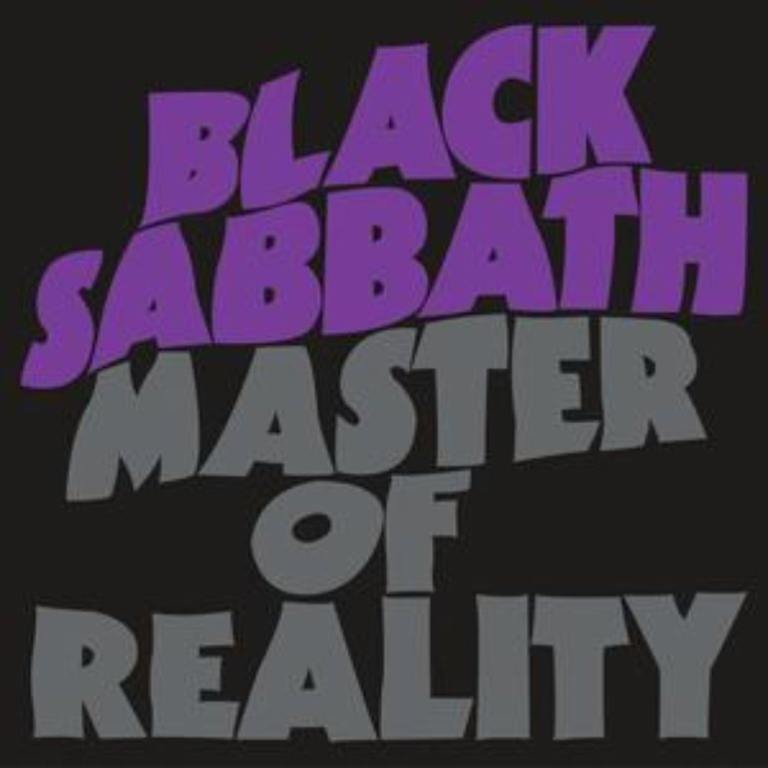 Warner Bros
Warner BrosIt’s understandable that religious parents would be unnerved by lyrics like “Would you like to see the Pope on the end of a rope? Do you think he's a fool?” The lyrics may criticize originated religion, but Geezer Butler, who wrote the lyrics, and who was raised Catholic, didn’t deny the existence of a higher power: “Could it be you're afraid of what your friends might say If they knew you believe in God above? They should realize before they criticize that God is the only way to love!” It’s a jam about tolerance and acceptance and respecting the beliefs of others.
5. “Sabbath Bloody Sabbath” - ‘Sabbath Bloody Sabbath’ (1973
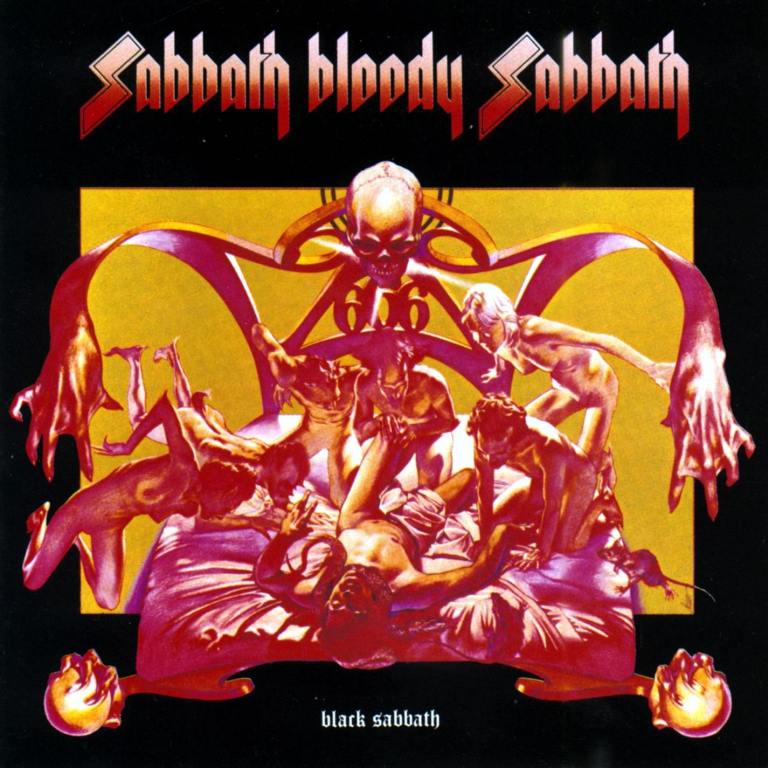 Warner Bros
Warner BrosOK, this one might actually be Tony Iommi’s greatest riff. But it’s certainly the one that saved the band. Iommi was dealing with writer’s block while working on Sabbath’s fifth album, and this riff came to him, breaking his slump.
4. “Iron Man” - ‘Paranoid’ (1970)
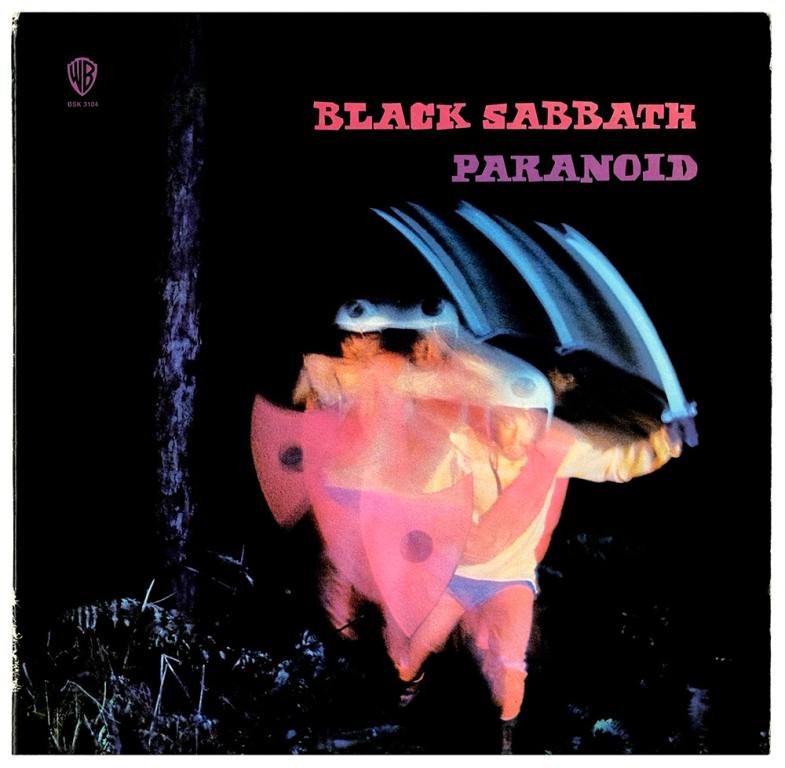 Warner Bros
Warner BrosOne of Sabbath’s biggest radio songs, it sounds like a ‘Twilight Zone’ episode set to doomy guitars, and it’s amazing that no one offered lyricist Geezer Butler a gig as a screenwriter after this one. The main character in the song travels to and sees -- surprise! -- an impending apocalypse. As he returns to the present “he was turned to steel/In the great magnetic field.” Sure, maybe some explanation for time travel and transforming into steel might be required. Anyway! He tries to warn everyone in the present about the future. No one believes him, they all mock him and he decides to smite them himself, creating the apocalypse he had been trying to prevent!
3. “Paranoid” - ‘Paranoid’ (1970)
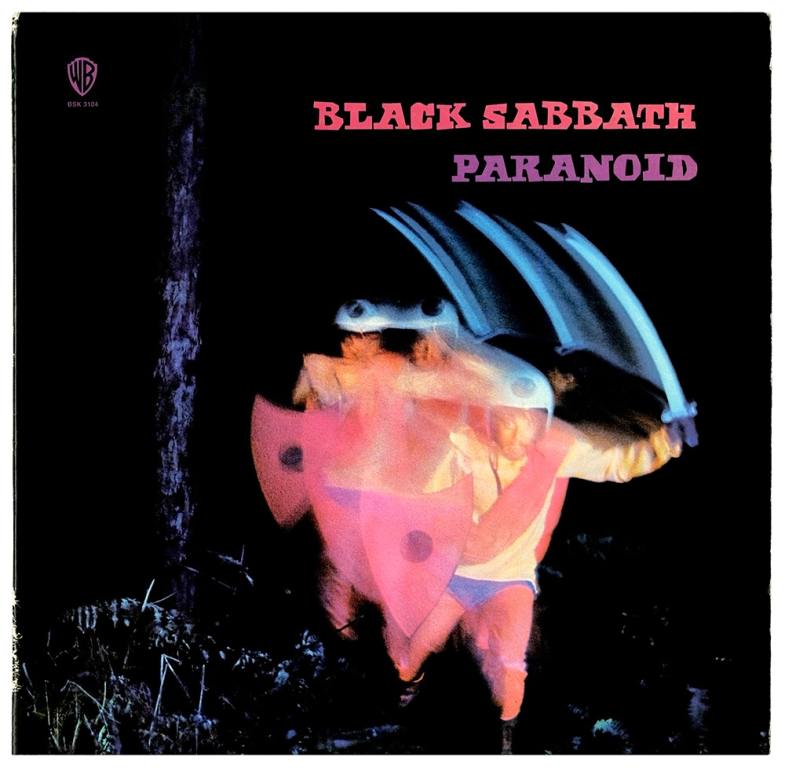 Warner Bros
Warner BrosBlack Sabbath’s biggest international hit single (it topped the pop charts in Germany, hit #2 in Switzerland, and #4 in the UK) is also one of their shortest, coming in at less than three minutes. Geezer Butler told Guitar World that the song “was written as an afterthought. We basically needed a three-minute filler for the album, and Tony came up with the riff. I quickly did the lyrics, and Ozzy was reading them as he was singing.”
2. “War Pigs/Luke’s Wall” - ‘Paranoid’ (1970)
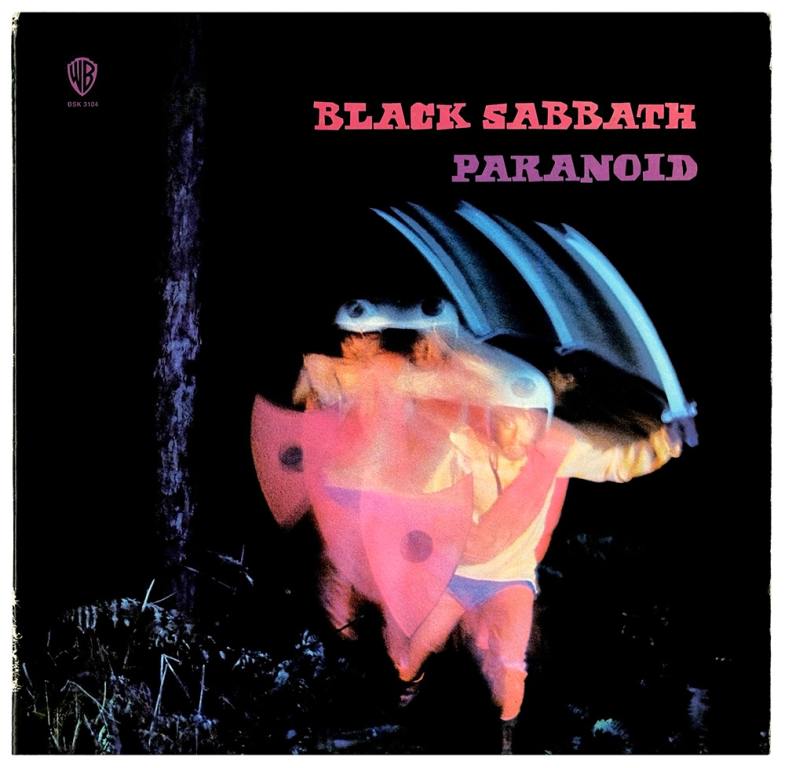 Warner Bros
Warner Bros2. “War Pigs/Luke’s Wall” - ‘Paranoid’ (1970) - By the time bassist/lyricist Geezer Butler came of age, mandatory military service in England had ended, but as the Vietnam War raged, Butler was worried about being drafted. Like his bandmates, he grew up poor, and in his case, two of his brothers had fought in the war. “War Pigs” -- with lyrics like “Generals gathered in their masses, just like witches at black masses” -- compared war to pure evil. It’s not only one of the great metal or rock and roll songs ever, but one of the great anti-war protest songs of all time.
1. “Black Sabbath” from ‘Black Sabbath’ (1970)
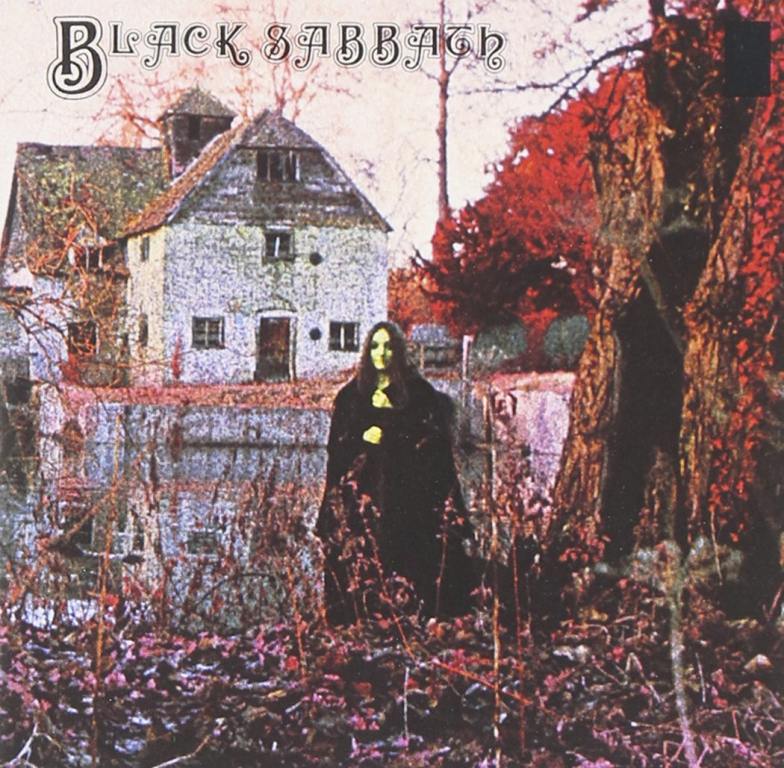 Warner Bros
Warner BrosThe first Black Sabbath song from the first Black Sabbath album, you could argue that this is ground zero for heavy metal. Geezer Butler’s occult fascination inspired the truly creepy lyrics, which were written by Ozzy Osbourne -- who has never sounded more haunted. Bill Ward’s drums are chaotic yet perfect and Tony Iommi’s guitar has never sounded more evil.








